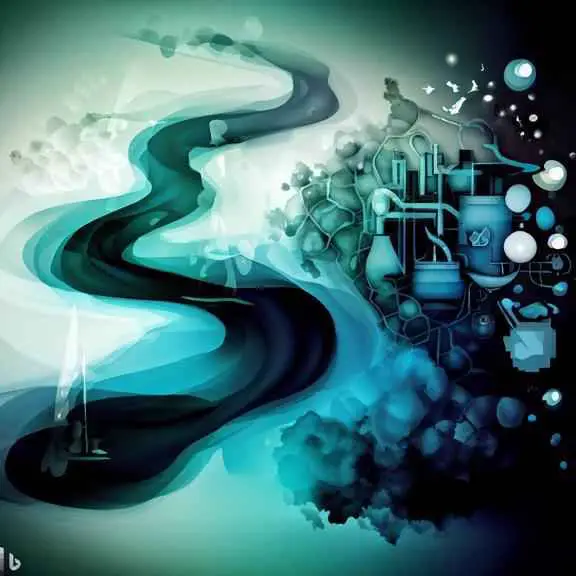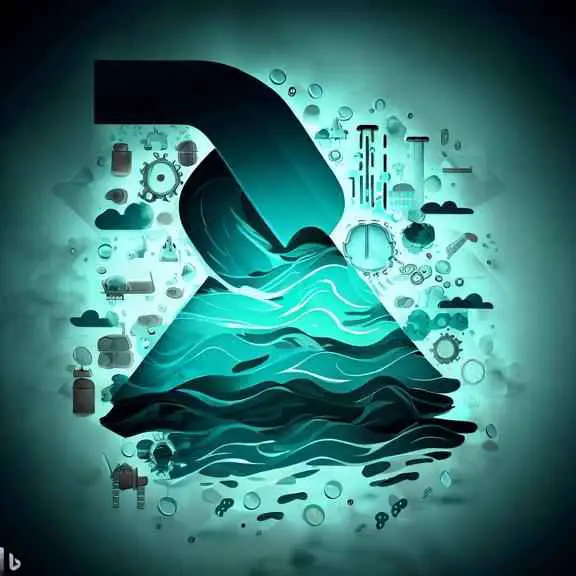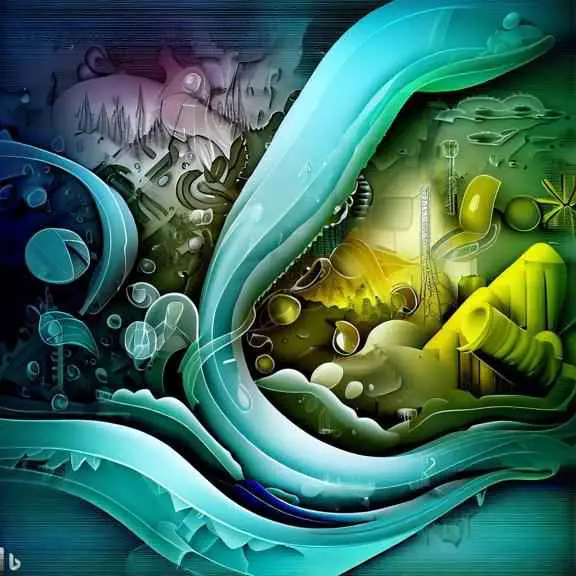Paragraph on
Water Pollution
for all Class, Words
by Environment on
Water pollution is one of the biggest environmental issues we are facing today. It occurs when harmful substances such as chemicals…, please continue reading.

Table of Content
Ad
The Paragraph on Water Pollution
Ad
Water pollution is one of the biggest environmental issues we are facing today. It occurs when harmful substances such as chemicals, plastics, or infectious agents enter water bodies, making it unsuitable for human consumption or aquatic life. There are different types of water pollution, and their sources can vary from industrial waste and agricultural runoff to improper disposal of household wastes.
One of the major forms of water pollution is chemical pollution, caused by toxins and heavy metals. These pollutants can enter the water when factories and industries dump chemicals into rivers or lakes. Some of the most harmful chemicals include lead, mercury, and arsenic, which can lead to serious health implications when consumed by humans or animals.
Another form of water pollution is plastic pollution, caused by the accumulation of plastic products in water bodies. Plastic pollution not only harms the aquatic life but also poses threats to human health as plastic can release harmful chemicals when it decomposes.
Besides, water pollution also affects the quality of our drinking water, leading to various health issues. For instance, heavy metals in the water can cause cancer, while high levels of nitrates can cause blue baby syndrome.
In conclusion, water pollution is a severe environmental issue that needs to be addressed. Every individual needs to contribute towards maintaining the cleanliness of water bodies by disposing of waste appropriately and reducing the usage of plastics.

Questions about Water Pollution
Ad
Questions and Answers:
- What is water pollution?
Answer: Water pollution is the introduction of harmful substances into water bodies that make it unsuitable for human consumption or aquatic life.
- What are the different types of water pollution?
Answer: The different types of water pollution include chemical, plastic, and biological pollution.
- How does chemical pollution occur?
Answer: Chemical pollution occurs when harmful chemicals such as toxins and heavy metals enter water bodies.
- What are the harmful chemicals that cause water pollution?
Answer: Lead, mercury, and arsenic are some of the harmful chemicals that cause water pollution.
- What is plastic pollution?
Answer: Plastic pollution is the accumulation of plastic products in water bodies.
- What are the threats of plastic pollution?
Answer: The threats of plastic pollution are its impact on marine life and human health.
- How does water pollution affect human health?
Answer: Water pollution can cause various health issues such as cancer and blue baby syndrome.
- What is the role of individuals in maintaining water bodies’ cleanliness?
Answer: Individuals can contribute to maintaining water bodies’ cleanliness by disposing of waste properly and reducing the usage of plastics.
- What are the sources of water pollution?
Answer: Industrial waste, agricultural runoff, and improper disposal of wastes are the sources of water pollution.
- Why is it crucial to address water pollution?
Answer: It is crucial to address water pollution as it has adverse effects on the environment, human health, and aquatic life.

Vocabulary related to Water Pollution
Ad
Vocabulary words:
- Environmental: relating to the natural world and the impact of human activity on its condition
Usage: Environmentally conscious individuals pay more attention to their lifestyle to have less impact on the environment. Synonyms: ecological, green, conservational Antonyms: non-environmental, wasteful, polluting
- Toxins: any harmful substance that is poisonous to living organisms
Usage: Toxins can be found in various chemicals, which can cause adverse effects on health and the environment. Synonyms: poison, venom, pollutant Antonyms: harmless, beneficial, healthy
- Heavy metals: metallic elements with a high density that can pose significant health risks to humans and the environment
Usage: Heavy metals such as lead and mercury can accumulate in various organs such as the liver, kidney or brain and cause long-term health issues. Synonyms: metallic pollutants, toxic metals, poisonous minerals Antonyms: lightweight metals, healthy minerals
- Decomposes: the natural breakdown of organic materials into simpler substances
Usage: Organic materials such as food and garden waste need to decompose, or they can cause environmental problems. Synonyms: decays, rots, breaks down Antonyms: grows, builds, constructs
- Aquatic life: the living organisms found in water bodies
Usage: Aquatic life is essential for maintaining the balance of aquatic ecosystems. Synonyms: marine life, water life, sea creatures Antonyms: terrestrial life, non-aquatic life
- Industrial waste: waste products produced by industrial activities
Usage: Industrial waste can contain toxins, harmful chemicals, and heavy metals that can pollute the environment. Synonyms: industrial garbage, industrial by-products, industrial refuse Antonyms: eco-friendly waste, sustainable by-products
- Agricultural runoff: water contaminated with chemicals and nutrients from farming activities
Usage: Agricultural runoff can pollute water bodies, causing various environmental issues. Synonyms: farm drainage, agrochemical runoff, farming outflow Antonyms: clean farming, controlled runoff
- Improper disposal: disposing of waste without following appropriate procedures
Usage: Improper disposal of waste can lead to environmental problems such as water pollution and air pollution. Synonyms: inappropriate waste management, illegal dumping, wrong garbage disposal Antonyms: proper disposal, appropriate waste management
- Adverse effects: harmful or negative consequences
Usage: Water pollution can have adverse effects on the environment, human health, and aquatic life. Synonyms: harmful impacts, negative effects, detrimental consequences Antonyms: positive impacts, beneficial effects, advantageous outcomes
- Contributing: playing a part in a particular outcome or result
Usage: Every individual needs to contributing towards reducing water pollution by disposing of waste appropriately. Synonyms: participating, collaborating, helping Antonyms: abstaining, non-participation, non-involvement

Structure of the sample "Water Pollution" paragraph
Ad
Cohesion and Coherence:
The paragraph on water pollution follows a clear and logical order of ideas. From the introductory sentence, the reader understands what the paragraph will discuss: the problem of water pollution. Then, the paragraph narrows the focus down to different forms of water pollution, including chemical pollution, plastic pollution, and biological pollution. The paragraph concludes by emphasizing the importance of every individual’s contributions towards maintaining the cleanliness of water bodies.
Overall, cohesion and coherence are evident throughout the paragraph through the use of linking words, such as “besides” and “in addition to,” establishing clear relationships between the different ideas. The paragraph also flows smoothly, with each idea building on the previous one, leading the reader to the main point.
